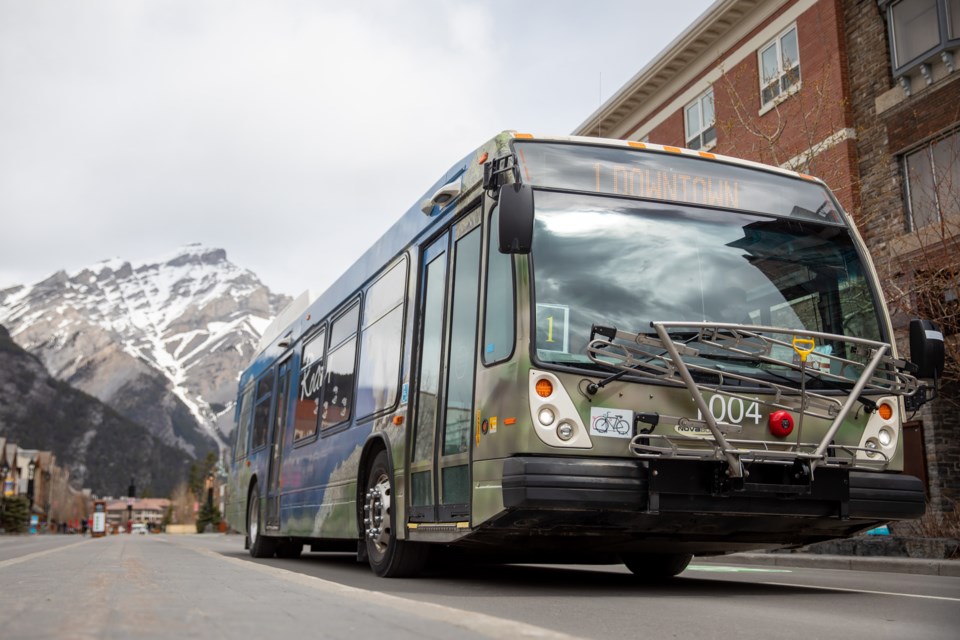CANMORE – Due to changing circumstances related to the building of an auxiliary at the Boulder facility, and the need to upgrade the electrical service for the EV charging infrastructure, Canmore council has shifted some money around.
Solid Waste Services and Bow Valley Regional Transit Services Commission (BVRTSC) shared the Boulder maintenance building, which had three bays. Two bays were used for buses and the third bay was used for storage of materials and equipment for operation of the recycling depot.
BVRTSC required the third bay for winter use, necessitating the need for a new storage building.
“The project was to build storage adjacent to the building that was heated,” said Andy Esarte, the Town's manager of engineering.
To accomplish this, $150,000 was allocated for the bus barn expansion. Unfortunately, the COVID-19 pandemic caused an increase in prices across the board and the cost of the project quickly exceeded the budget. With this, a compromise was reached between Solid Waste Services and BVRTSC.
“The bus bays are deep in that building but the buses are in the way of accessing storage in the back, so BVRTSC and Solid Waste Services worked out an agreement to ensure buses are moved each operational day so the empty bus bays can be used to access storage in the back,” Esarte said. “It is not an ideal solution but for the medium-term both parties are happy and committed to that.”
While there was now no need to build an auxiliary building, there was a need to improve the electrical service at the Boulder facility to provide sufficient electricity for the planned EV bus charger. The cost of servicing is $125,000, along with the charger purchase and installation at $65,000. This new $190,000 far exceeds the $40,000 allocated in the budget.
As a result, administration went to council to approve moving the funds from the auxiliary building construction to the electrical service upgrade.
“We found the building required a new service, so the purpose of this transfer is to fund the work needed to bring a new commercial service into that facility, which will allow for electrification of the fleet,” Esarte said. “There will be potential to charge three buses in there."
Mayor Sean Krausert praised administration for finding a solution to the issue.
“As usual, bringing back some common sense, smart suggestions for how we move forward when circumstances change.”




